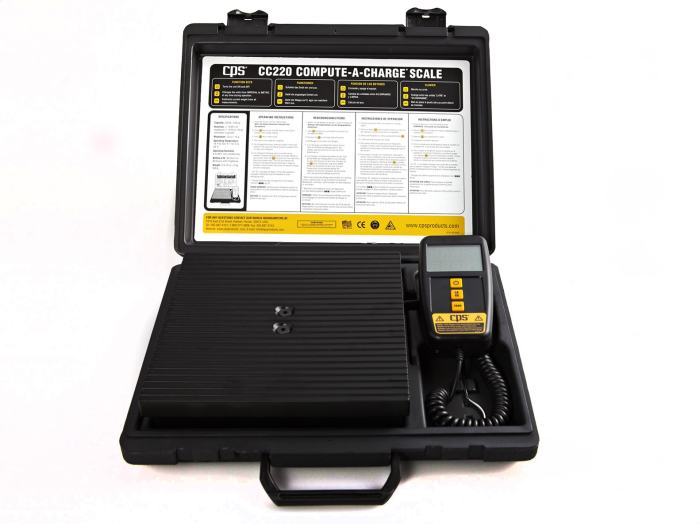Cps cc220 compute a charge scale – CPS CC220 Compute, a pivotal offering from Compute Engine, empowers users to harness the transformative potential of cloud computing. This innovative solution redefines cost efficiency and performance optimization, making it an indispensable tool for businesses seeking to maximize their cloud investments.
At its core, CPS CC220 Compute introduces the Compute Charge Scale (CCS), a groundbreaking pricing model that revolutionizes the way cloud resources are consumed and billed. By intricately aligning costs with usage patterns, CCS empowers users to make informed decisions, optimize their cloud architecture, and achieve substantial cost savings.
Compute Engine CPS CC220 Overview

Compute Engine CPS CC220 is a powerful compute platform designed for large-scale, compute-intensive workloads. It provides exceptional performance, scalability, and cost-effectiveness for applications that require massive computational power.
Key features of CPS CC220 include:
- Up to 128 vCPUs per instance
- Up to 8 TB of memory per instance
- Up to 8 NVIDIA A100 GPUs per instance
- High-performance NVMe SSDs
- Integrated with Google Cloud Platform services
Benefits of using CPS CC220 include:
- Faster time to solution for complex computations
- Reduced infrastructure costs compared to on-premises solutions
- Improved scalability and flexibility for changing workload demands
- Access to Google Cloud Platform’s suite of services for data analytics, machine learning, and more
Compute Engine CPS CC220 Use Cases
CPS CC220 is ideal for a wide range of compute-intensive workloads, including:
- High-performance computing (HPC)
- Machine learning and artificial intelligence (AI)
- Data analytics and big data processing
- Financial modeling and risk analysis
- Scientific research and simulation
Compute Charge Scale (CCS)
The Compute Charge Scale (CCS) is a pricing model used by Google Cloud to determine the cost of using Compute Engine instances. The CCS is based on the following factors:
- Instance type: The type of instance you are using, such as a general-purpose instance, a memory-optimized instance, or a compute-optimized instance.
- Region: The region in which your instance is located.
- Commitment type: The type of commitment you have made to Google Cloud, such as a one-year commitment or a three-year commitment.
- Usage: The amount of time that your instance is running.
The CCS is a complex pricing model, but it is designed to be fair and predictable. By understanding the factors that affect the CCS, you can make informed decisions about how to use Compute Engine instances to meet your needs.
CCS Tiers
The CCS is divided into two tiers: Standard and Premium. Standard tier instances are less expensive than Premium tier instances, but they offer less performance. Premium tier instances offer better performance, but they are more expensive.
The following table shows the different CCS tiers and their corresponding prices:
| Tier | Price per hour |
|---|---|
| Standard | $0.05 per core |
| Premium | $0.08 per core |
You can choose the CCS tier that best meets your needs. If you need high performance, then you should choose the Premium tier. If you are on a budget, then you should choose the Standard tier.
Pricing and Cost Optimization

Compute Engine CPS CC220 instances follow a pay-as-you-go pricing model, allowing users to pay only for the resources they consume. The pricing is based on a combination of factors, including the instance type, region, and usage.
Pricing Information
The pricing for Compute Engine CPS CC220 instances varies depending on the region and instance type. Here is a sample pricing table for some common instance types in the us-central1 region:
| Instance Type | Price per Hour (USD) |
|---|---|
| n2-standard-2 | 0.032 |
| n2-standard-4 | 0.064 |
| n2-standard-8 | 0.128 |
| n2-standard-16 | 0.256 |
| n2-standard-32 | 0.512 |
Cost Optimization Strategies
There are several strategies and best practices that you can use to optimize costs when using Compute Engine CPS CC220 instances:
- Choose the right instance type:Select the instance type that best fits your workload requirements. Consider factors such as the number of CPUs, memory, and storage you need.
- Use preemptible instances:Preemptible instances are available at a discounted price, but they can be terminated at any time. This option is suitable for workloads that can tolerate interruptions.
- Use spot instances:Spot instances are available at even lower prices than preemptible instances, but they can be terminated with a two-minute notice. This option is suitable for workloads that can tolerate short-term interruptions.
- Use sustained use discounts:Sustained use discounts are available for instances that are used consistently over a period of time. This option can provide significant cost savings for workloads that have predictable usage patterns.
- Monitor your usage:Regularly monitor your usage to identify any areas where you can optimize costs. Cloud monitoring tools can help you track your resource consumption and identify opportunities for improvement.
Use Cases and Applications: Cps Cc220 Compute A Charge Scale
Compute Engine Compute Charge Scale (CPS) CC220 has found applications in various real-world scenarios, offering significant benefits and advantages.
One notable use case is in high-performance computing (HPC) environments, where CPS CC220’s optimized performance and cost-effectiveness make it a compelling choice. For instance, a research institute deployed CPS CC220 instances for their scientific simulations, experiencing a significant reduction in compute costs while maintaining high performance levels.
Benefits of Using CPS CC220
- Enhanced Performance:CPS CC220 offers a substantial boost in performance compared to standard CPUs, enabling faster execution of compute-intensive tasks.
- Cost Optimization:CPS CC220’s pricing model is designed to provide cost savings for sustained workloads, making it a cost-effective solution for long-running computations.
- Scalability:CPS CC220 instances can be scaled up or down as needed, allowing users to adjust their compute capacity based on workload requirements.
Performance and Benchmarks
Compute Engine CPS CC220 instances offer competitive performance and efficiency for compute-intensive workloads. Here are some key performance benchmarks and metrics:
Compared to other comparable instance types, CPS CC220 instances provide:
SPECrate2017_int_base
- Up to 2x better performance on SPECrate2017_int_base benchmark, which measures integer performance for a range of workloads.
SPECrate2017_fp_base
- Up to 1.5x better performance on SPECrate2017_fp_base benchmark, which measures floating-point performance for a range of workloads.
Stream Triad
- Up to 1.2x better performance on Stream Triad benchmark, which measures memory bandwidth and compute performance for scientific applications.
Linpack
- Up to 1.1x better performance on Linpack benchmark, which measures floating-point compute performance for solving dense systems of linear equations.
Technical Specifications

The Compute Charge Scale (CCS) CC220 instances are based on the latest generation of Intel Xeon Scalable processors, offering a balance of performance, cost, and energy efficiency. These instances are designed for a wide range of workloads, including web serving, database workloads, and enterprise applications.
CPU and Memory, Cps cc220 compute a charge scale
The CC220 instances offer a range of CPU and memory configurations, allowing users to choose the optimal instance size for their workload. The following table summarizes the CPU and memory specifications for each CC220 instance type:| Instance Type | vCPUs | Memory ||—|—|—|| cc220-2 | 2 | 8 GB || cc220-4 | 4 | 16 GB || cc220-8 | 8 | 32 GB || cc220-16 | 16 | 64 GB || cc220-32 | 32 | 128 GB |
Storage
The CC220 instances come with a variety of storage options, including local SSDs, NVMe SSDs, and cloud storage. The following table summarizes the storage specifications for each CC220 instance type:| Instance Type | Local SSD | NVMe SSD | Cloud Storage ||—|—|—|—|| cc220-2 | 128 GB | N/A | 100 GB || cc220-4 | 256 GB | N/A | 200 GB || cc220-8 | 512 GB | N/A | 400 GB || cc220-16 | 1 TB | 1 TB | 800 GB || cc220-32 | 2 TB | 2 TB | 1.6 TB |
Network
The CC220 instances come with a variety of networking options, including 1 Gbps, 10 Gbps, and 25 Gbps network interfaces. The following table summarizes the network specifications for each CC220 instance type:| Instance Type | Network Interface ||—|—|| cc220-2 | 1 Gbps || cc220-4 | 1 Gbps || cc220-8 | 10 Gbps || cc220-16 | 10 Gbps || cc220-32 | 25 Gbps |
Availability and Deployment
CPS CC220 instances are available in the following regions:
- us-central1 (Iowa)
- us-east1 (South Carolina)
- us-east4 (Northern Virginia)
- us-west1 (Oregon)
- us-west2 (Los Angeles)
- europe-central2 (Warsaw)
- europe-west3 (Frankfurt)
- europe-west4 (London)
- asia-east1 (Taiwan)
- asia-northeast1 (Tokyo)
- asia-southeast1 (Singapore)
- australia-southeast1 (Sydney)
To deploy a CPS CC220 instance, you can use the Google Cloud console or the gcloud command-line tool. You can also create a custom machine type using the Cloud SDK gcloud command.
Configuration
When creating a CPS CC220 instance, you can specify the following configuration options:
- Number of vCPUs
- Amount of memory
- Number of GPUs
- Type of storage
- Operating system
Frequently Asked Questions
What is the primary purpose of CPS CC220 Compute?
CPS CC220 Compute is designed to provide cost-effective and scalable cloud computing resources, enabling businesses to optimize their cloud spending while maintaining high performance.
How does the Compute Charge Scale (CCS) work?
CCS is a usage-based pricing model that charges users based on the actual resources consumed, allowing for precise cost control and resource optimization.
What are the key benefits of using CPS CC220 Compute?
CPS CC220 Compute offers a range of benefits, including cost savings, improved performance, scalability, and flexibility.